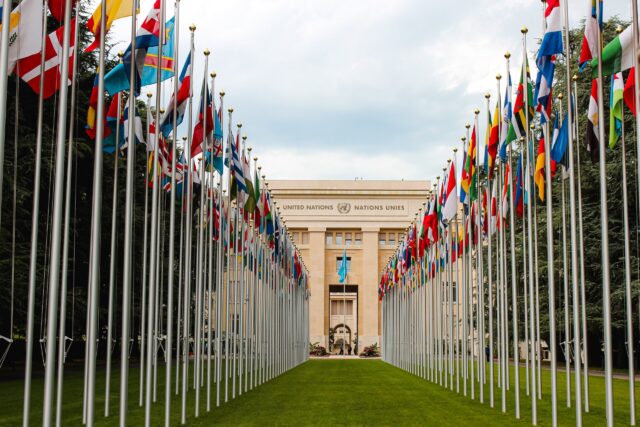Summary of:
Nixon, C. (2017). Helping ourselves first: Conflict management strategies of regional international organizations. University Honors Program Theses, 248. https://digitalcommons.georgiasouthern.edu/honors-theses/248
Background & Theory
The author discusses the critical need of regional international organizations (RIOs) to intervene in ethnic conflicts, but notes some of the surrounding limitations to creating sustainable peace, such as the level of violence or the restrictions an organization might face in their very design (and all the further implications of this).
Research Question
The author seeks to answer the following questions:
- How might a regional international organization be affected by its organizational structure and design when it comes to intervening in conflict, and how does this impact their intervention strategies?
Methods
To answer her questions, the author primarily evaluates how regional international organizations have previously performed when involved in conflicts and their roles as conflict mediators, finding areas of effectiveness as well as areas that need improvement or were restricted. Nixon specifically focuses on the African Union and its role in the South Sudan conflict in 2013, and addresses 5 hypotheses she developed to create a framework for her research.
Results
Nixon discovered that organizational structure does impact the ways and methods an RIO might intervene in a conflict. For instance, a security organization vs. a humanitarian organization might both take steps to help resolve conflict in an area, but would certainly address this issue differently based on their structure and the ways they function. An RIO is very likely to intervene in its specific area regardless of the support available due to its investment in that region, but this may impact their effectiveness. Violence also plays a large role in how an RIO intervenes and what methods are used.
What This Means
- Regional international organizations are critically important to resolving conflicts in their regions. While there are some limitations and at times, liabilities, they are crucial in creating and maintaining peace in the area as conflict mediators.
- The specific organizational structure, the level of violence in the area, and the resources available to an RIO all impact the ways in which it might intervene and how it does so. However, its intervention, especially coming from a level of great understanding, is very helpful and important in resolving the conflicts regardless of what it looks like.
- The larger picture shows that peace, especially in international conflicts, is much more sustainable when brought about by those who belong to that region, can better understand all facets of the situation, and are there long after the initial conflict resolution measures to ensure they are maintained. This also alludes to the fact that understanding a conflict fully is significant when trying to mediate or resolve it.
Final Takeaway
For consultants: We can learn from the concepts discussed here that there is great value in adapting to each situation as it comes, and also having a true sense of understanding the underlying issues at hand. When working as a mediator, there is much to be said about seeing the larger picture and understanding the nuances that affect each of your clients. Understanding these differences will be very helpful in resolving the situation.
For everyone: Each of us has unique perspectives as we go through life. This is completely normal and in many ways, necessary for us to have a diverse society. However, the value of understanding and appreciating others is never to be underestimated in how it can prevent and resolve conflict.



